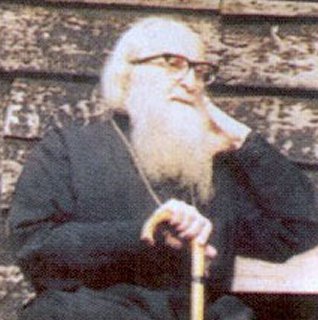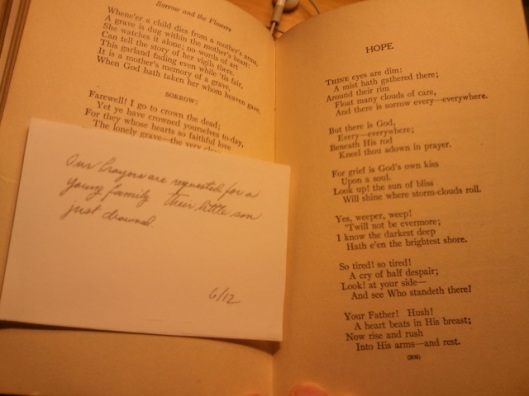 “Papa, I wanted to ask you…I know it’s hard to answer for someone else…” I was embrarassed and wished I hadn’t started this. “Well, I lived here for a while after the war, but that was just having fun and spending my severance pay. Now, though–these weeks we’ve been here–the more I see of Paris with you, the more I feel I should give up job and country and seriously live here and find out if I can be a writer–that’s a pretty half-ass pronouncement, but I think you know what I mean. So many men I know in New York work at jobs they say they don’t like and they’re always promising themselves that one day they will quit and do whatever it is they really want to do. Writing is one of their favorite Canaans. They tell you the plots for their novels and plays which the world is waiting for. Well, I don’t want to belong to that fraternity–Alpha Gamma Frustration–but at the same time I can see that chucking an editorial job and rushing off to a Left Bank garret with beret and portable may be overly romantic. It’s just that I’m young now and I remember the equation you once mentioned–‘hesitation increases in relation to risk in equal proportion to age.'”
“Papa, I wanted to ask you…I know it’s hard to answer for someone else…” I was embrarassed and wished I hadn’t started this. “Well, I lived here for a while after the war, but that was just having fun and spending my severance pay. Now, though–these weeks we’ve been here–the more I see of Paris with you, the more I feel I should give up job and country and seriously live here and find out if I can be a writer–that’s a pretty half-ass pronouncement, but I think you know what I mean. So many men I know in New York work at jobs they say they don’t like and they’re always promising themselves that one day they will quit and do whatever it is they really want to do. Writing is one of their favorite Canaans. They tell you the plots for their novels and plays which the world is waiting for. Well, I don’t want to belong to that fraternity–Alpha Gamma Frustration–but at the same time I can see that chucking an editorial job and rushing off to a Left Bank garret with beret and portable may be overly romantic. It’s just that I’m young now and I remember the equation you once mentioned–‘hesitation increases in relation to risk in equal proportion to age.'”
Ernest looked down into his drink; then he looked up and studied our reflections in the speckled mirror behind the bar and talked to my mirror-self. “Well, it’s tough advice to give. Nobody knows what’s in him until he tries to pull it out. If there’s nothing or very little, the shock can kill a man. Those first years here when I made my run, as you say you now want to make yours, and I quit my foreign correspondent job with the Toronto Star to put myself on the line, I suffered a lot. I had finally shucked off the journalism I had been complaining about and I was finally doing all the good writing I had promised myself. But every day the rejected manuscripts would come back through the slot in the door of that bare room where I lived over the Montmartre sawmill. They’d fall through the slot onto the wood floor, and clipped to them was that most savage of all reprimands–the printed rejection slip. The rejection slip is very hard to take on an empty stomach and there were times when I’d sit at that old wooden table and read one of those cold slips that had been attached to a story I had loved and worked on very hard and believed in, and I couldn’t help crying.”
“I never think of you crying,” I said.
 “I cry, boy,” Ernest said. “When the hurt is bad enough, I cry.” He stirred his drink meditatively. “So, Hotch, just as you wouldn’t give a friend advice on whether or not to play the wheel, you can’t on this, except to quote the odds, which are a damn sight worse than roulette. And yet…” He turned away from my mirror-self and spoke to me directly, in that special way of his that made the words come to you through a corridor of intimacy. “Yet, there’s this to consider as a guide, since it’s a thing I truly know: If you are lucky enough to have lived in Paris as a young man, then wherever you go for the rest of your life it stays with you, for Paris is a movable feast.”
“I cry, boy,” Ernest said. “When the hurt is bad enough, I cry.” He stirred his drink meditatively. “So, Hotch, just as you wouldn’t give a friend advice on whether or not to play the wheel, you can’t on this, except to quote the odds, which are a damn sight worse than roulette. And yet…” He turned away from my mirror-self and spoke to me directly, in that special way of his that made the words come to you through a corridor of intimacy. “Yet, there’s this to consider as a guide, since it’s a thing I truly know: If you are lucky enough to have lived in Paris as a young man, then wherever you go for the rest of your life it stays with you, for Paris is a movable feast.”
From: Papa Hemingway by A.E. Hotchner (pgs. 56-57)



 I have always kept a copy of that simple note with me. Now I use it as a bookmark in a book of poems,
I have always kept a copy of that simple note with me. Now I use it as a bookmark in a book of poems,